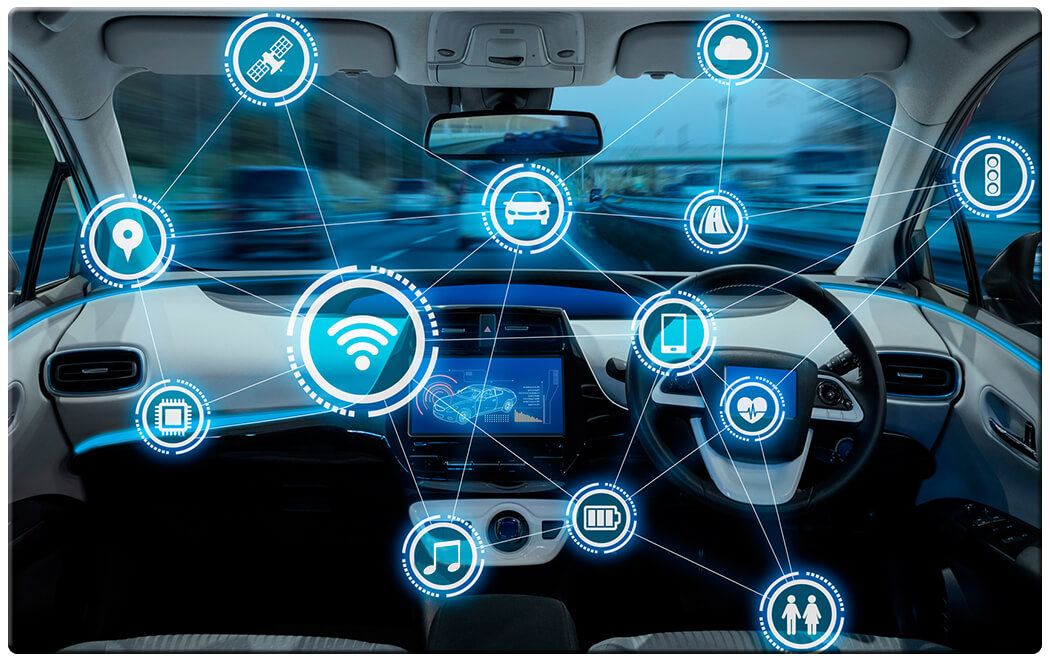
Technology has a way of changing everything.
Things that were once cumbersome, frustrating or tedious are now becoming automated and more efficient. Robots are replacing human workers, our mobile phones now incorporate an assortment of features that once required separate accessories such as calculators, cameras and laptops; even the process of making a payment has changed from withdrawing cash inside your bank to being able to simply wave a plastic card, and voila.
But there is a cost that is often overlooked in the name of progress and efficiency, and that is the surrender of your choice, and the satisfaction you can gain from undertaking some of these activities. There is an art to photography that is lost in the age of digital where social media is saturated with pictures of #meals, #TBT and #OOTD. Not needing to go in branch to withdraw cash on the otherhand is a blessing – we’ll stick with contactless for that, thanks… but driving? There will likely be a difference of opinion on this, but a lot of motorists actually enjoy driving, and are going to be very unhappy about having that taken away from them.
From a safety perspective, there is a solid argument in favour of Smart Motorwaysand Driverless Cars (naturally once the teething issues have been worked out), however this does come at the expense of drivers losing their freedom of choosing where and how to drive. It would undoubtedly prove safer if the margin for human error could be reduced to the point of non-existence, and insurance would surely be cheaper if the driver’s circumstances do not affect the risk of an accident, as they are not actually in control. It could be argued that such a freedom should come second place to safety, but as the famous Benjamin Franklin quote goes:
“Those who would give up essential liberty, to purchase a little temporary safety, deserve neither liberty nor safety.”
Nevertheless, we cannot argue that Autonomous Cars do indeed look a very enjoyable way to commute. Imagine those mornings of frustrated stop and start urban driving being traded in for a chance to relax and read the paper, drinking your morning coffee whilst you commute. Or not needing to worry about drink driving after a heavy night out, as the vehicle takes over and does it’s own thing letting you sit and nurse your hangover without worrying about causing an accident. Or those tedious long drives halfway across the country where your legs seize up and your butt goes numb, and you need to have the windows down and the music up just to stop you dozing off.
Driverless cars would make these scenarios a thing of the past.
Imagine a future where insurance cost is determined by the vehicle you drive, regardless of your age or claims history; after all, if you are not in control of the vehicle as such, how can any accident be your fault? Driverless Cars or rather ‘Autonomous Cars’ are intended to navigate without human involvement using sensors and systems including radar, laser light, GPS and odometers to understand their environment. Onboard systems can identify street signage and obstacles, with the ultimate goal of being able to drive entirely autonomously without causing any accident or incident. In a world where autonomous cars are the norm, society could expect more efficient traffic flow, increased safety, reduced accidents and reduced crimes. Besides obstructive drivers opposing the new approach to driving, concerns over safety and a lack of current legal regulation are holding up the transition. This being said, Dubai is hopeful that a quarter of its public transport will be autonomous in 12 years time.
Smart Motorways are a relatively new concept however road technologies are evolving quickly as we reported ourselves in previous articles such as New LED Lights On Crossings To Prevent Accidents and Smart Motorways Are The Future. With congestion costing an estimated £2 billion per year, improving traffic flow and efficiency has a huge economic benefit for the country.
It has already been demonstrated that Smart Motorways are successful as per findings from the M42 motorway which indicated a 22% improvement on journey reliability, and more than a 50% reduction in personal injury accidents, with zero fatalities. Utilising state of the art sensor technology and the latest standard of wireless broadband (5G), Smart Motorways should be able to speak seamlessly with Autonomous Cars to make driving a smoother and safer experience.
How do you feel about driverless cars and surrender control to the machines? Do you think this will ever be achievable or is it all just a pipe dream? Would you miss manual driving if autonomous cars became mandatory? Be sure to head over to social media and let us know @connect_insure on Twitter and @cibltd on Facebook.
Related Articles:
Motor Trend: The Beginning of the End of Driving
Spectrum Internet: Smart Roads, Driverless Cars
Gov.uk: How to Drive on a Smart Motorway
Gov.uk: Smart Motorways Programme
Tech Trends: Preparing Fully Autonomous World

